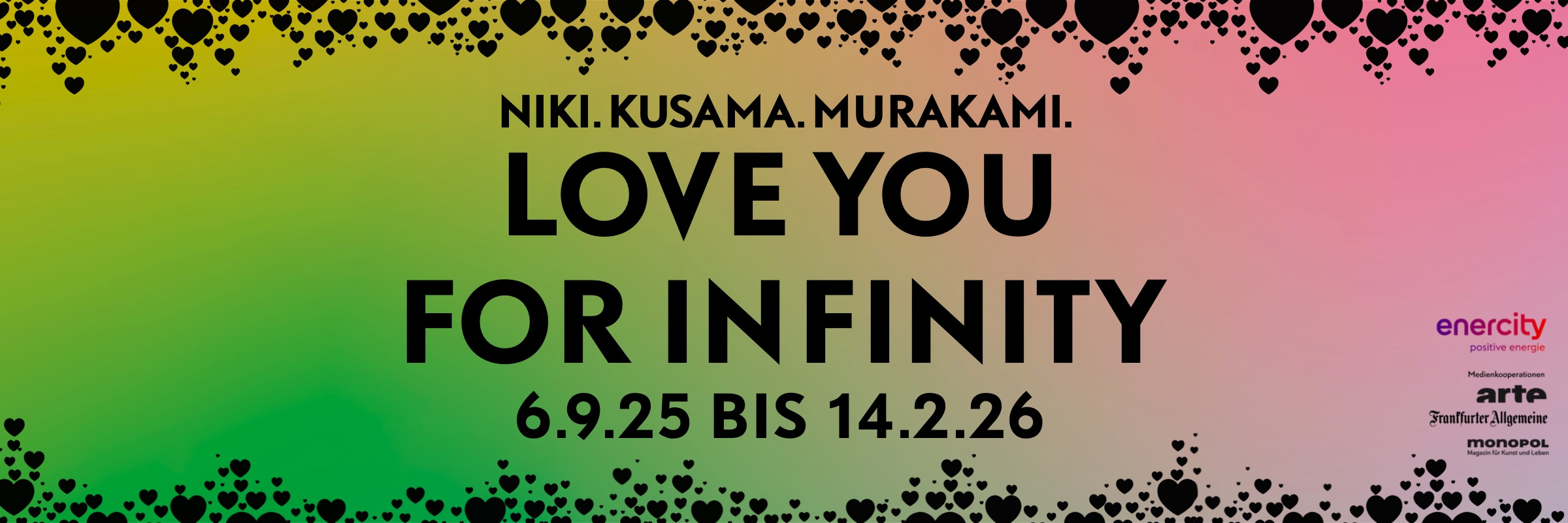
Dennis Buck
Sweet Drama
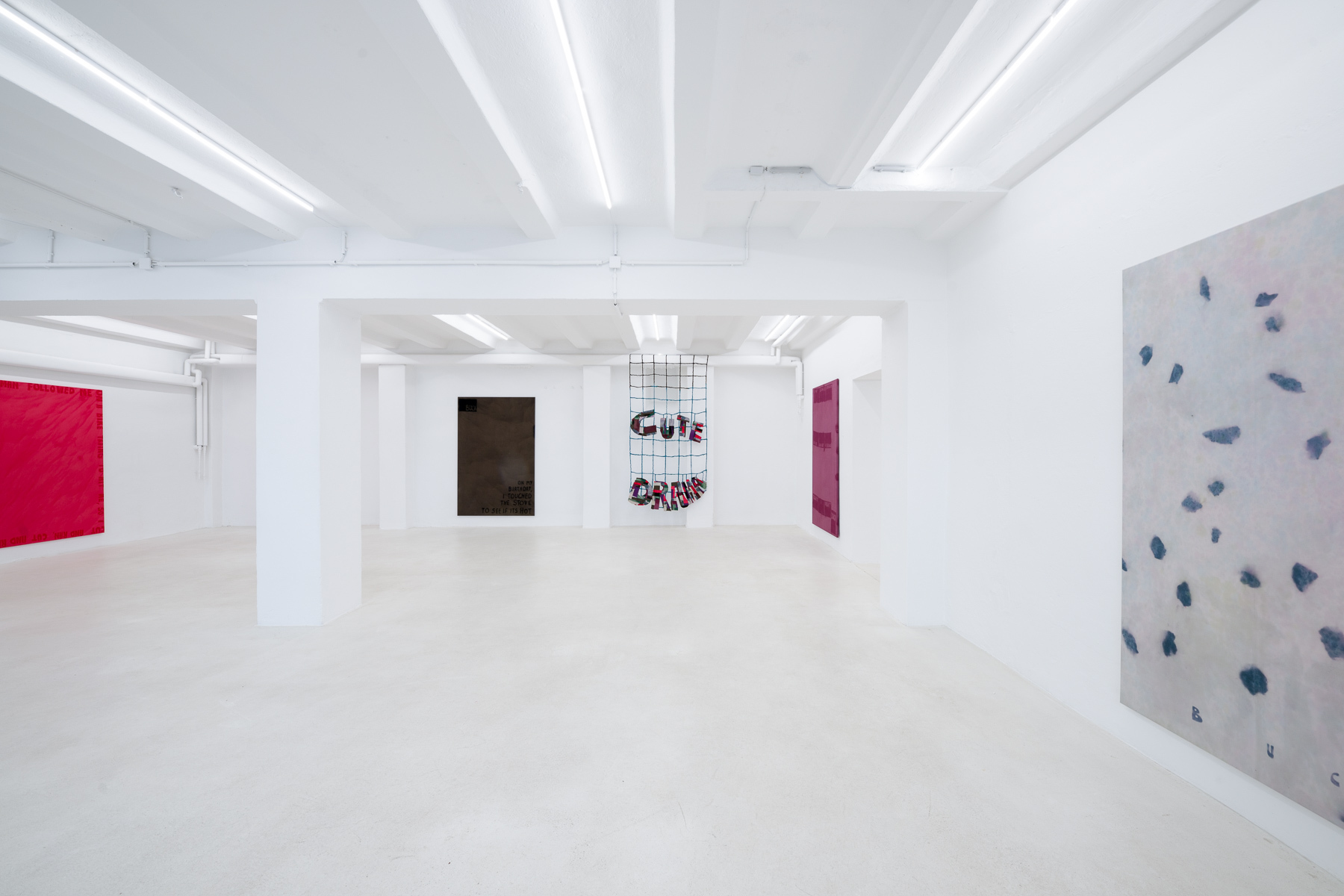
Advertisement
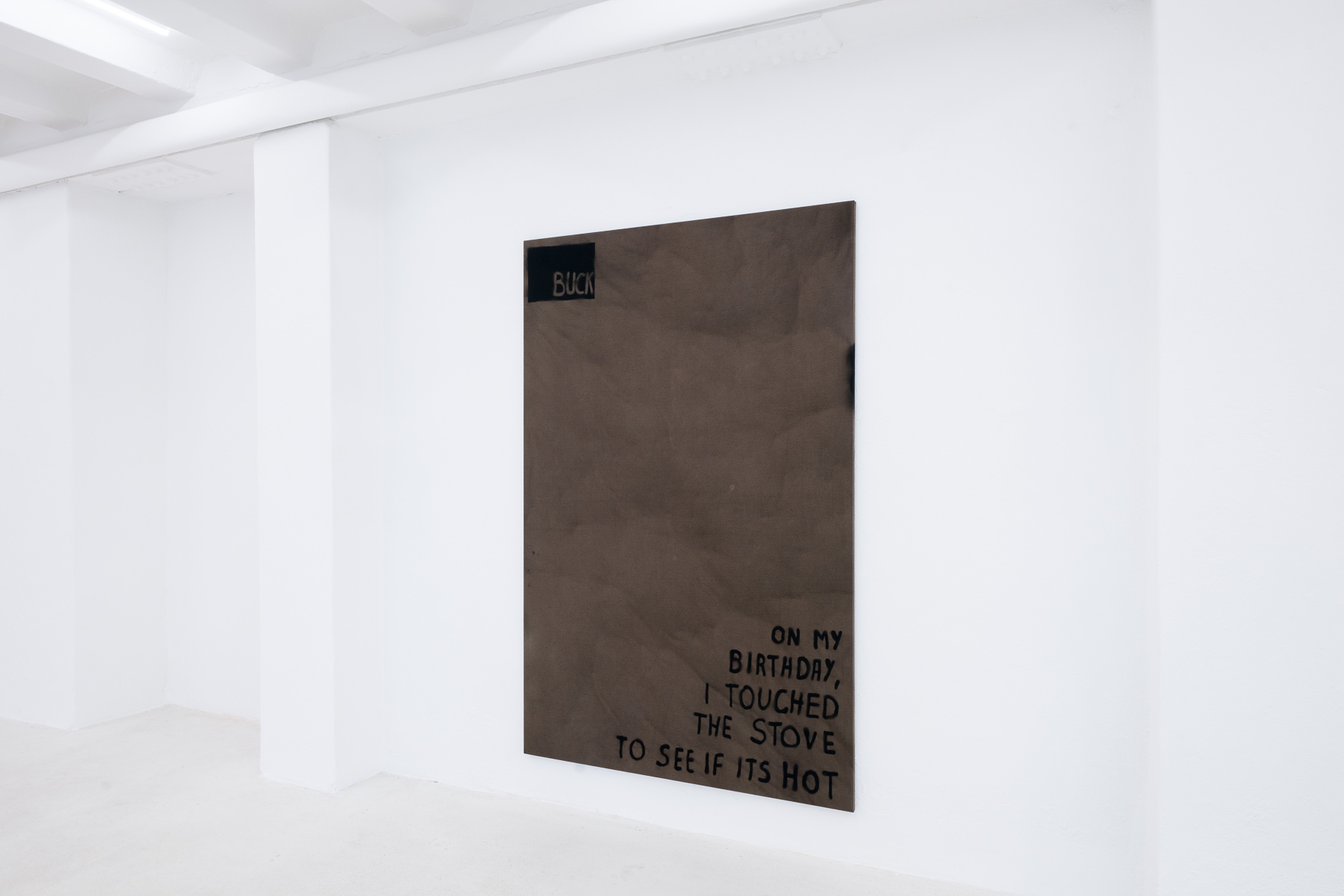
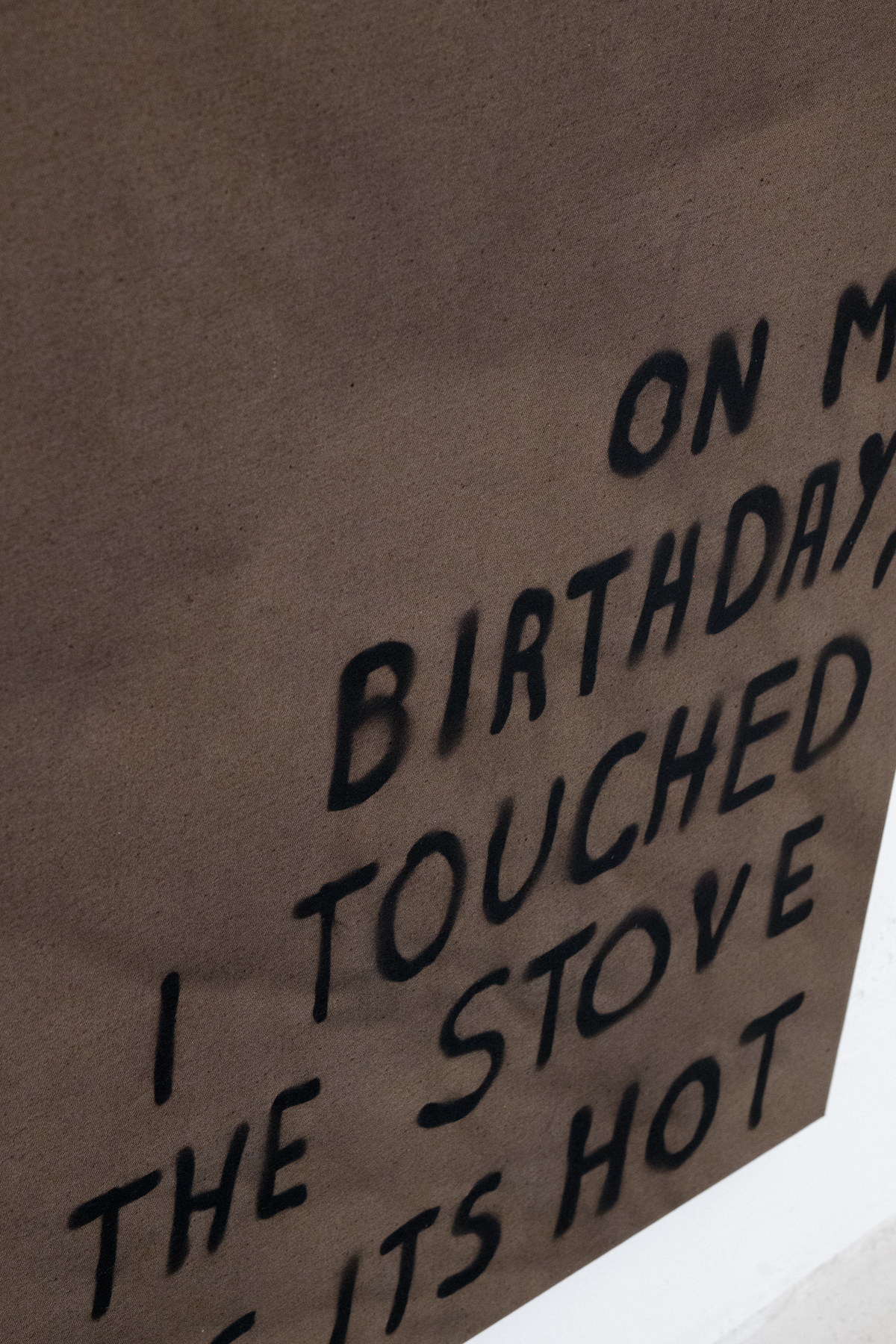
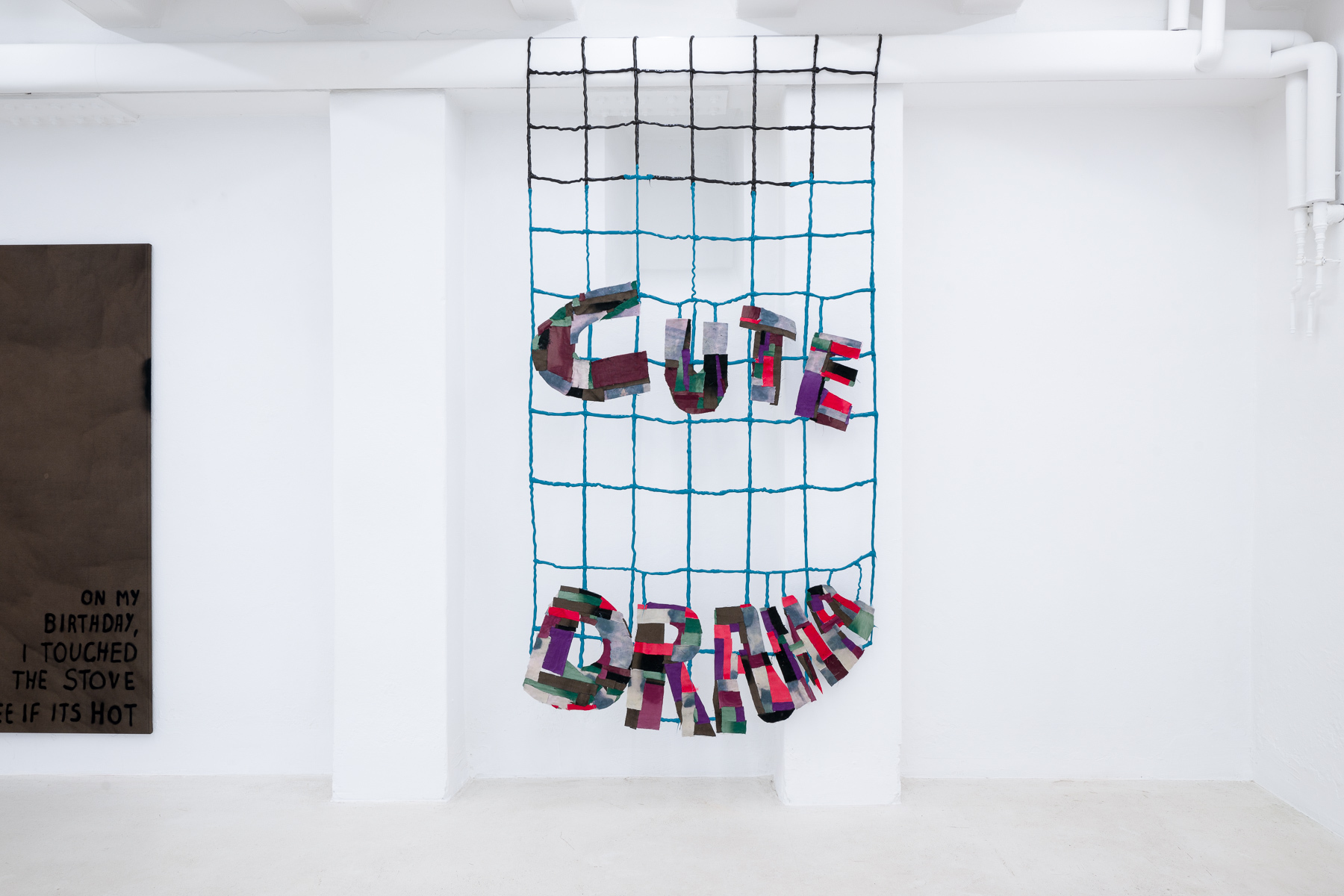
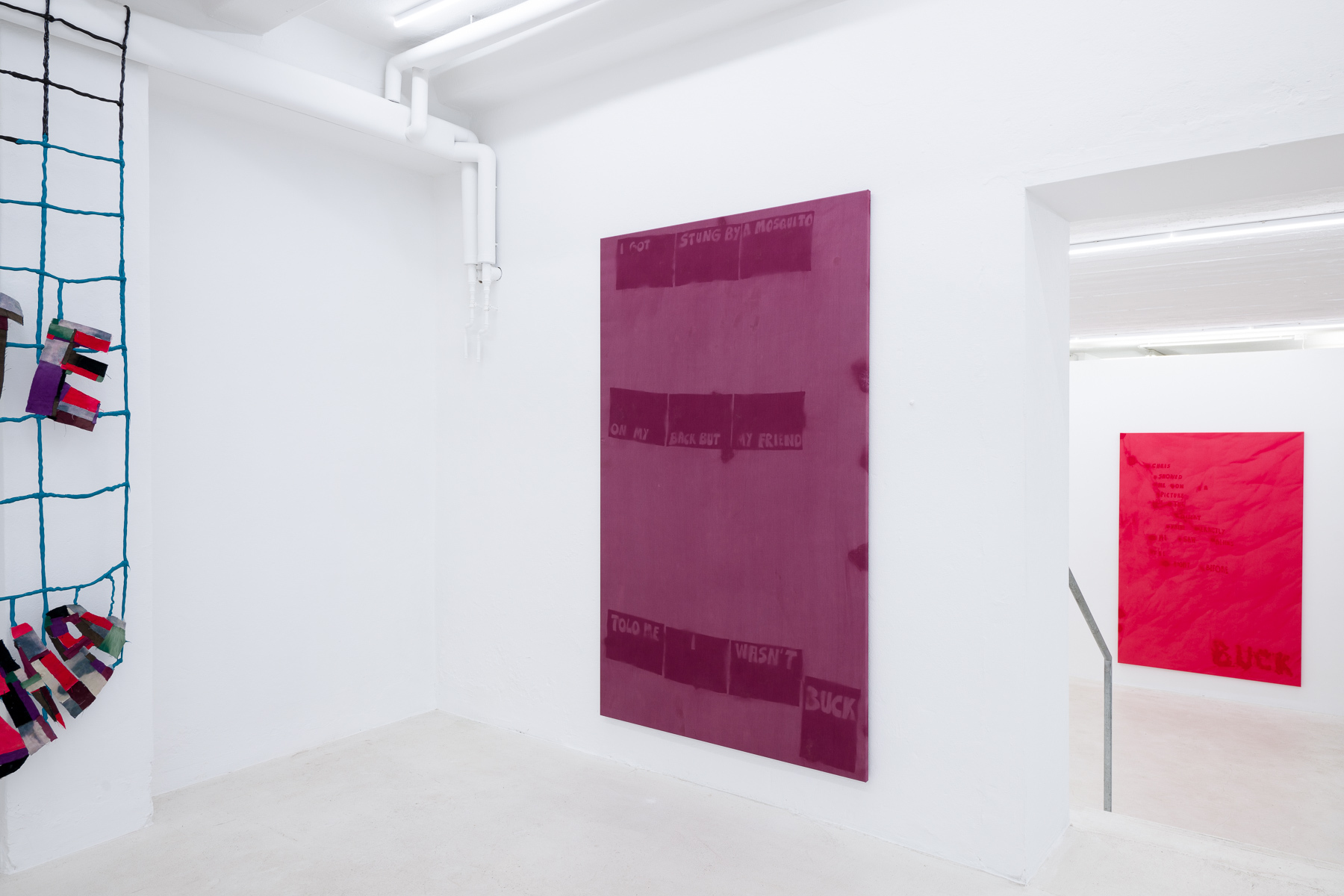
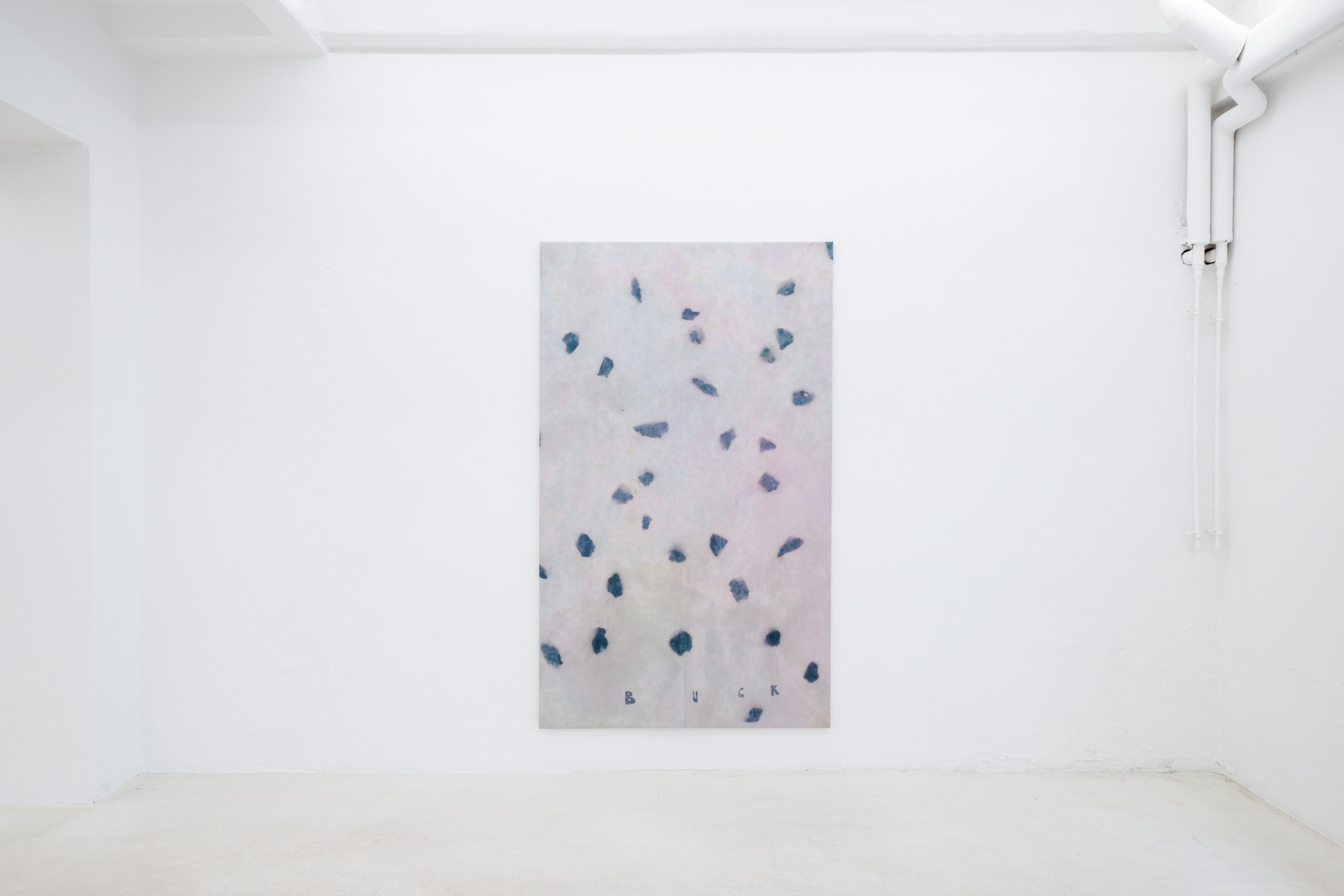
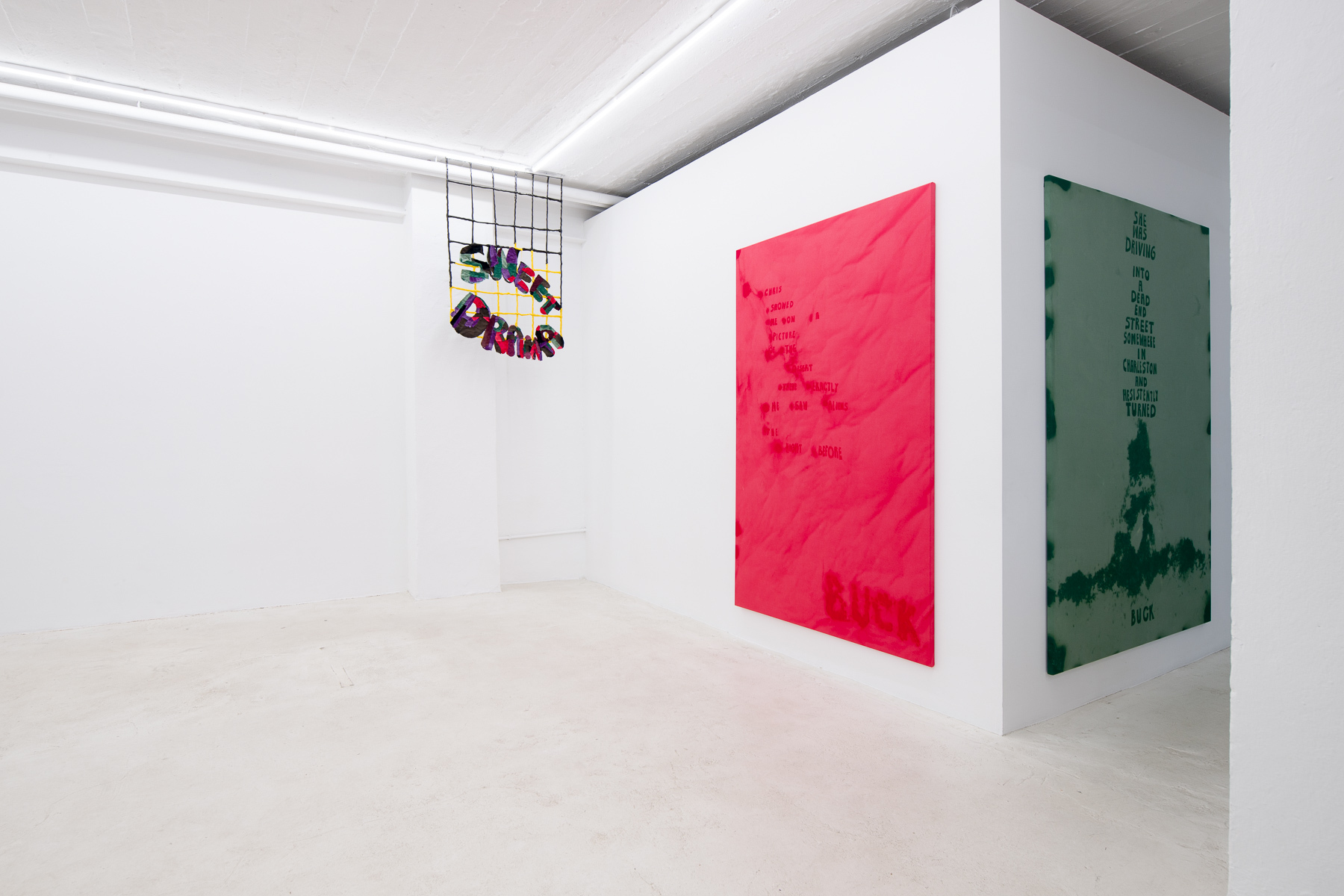
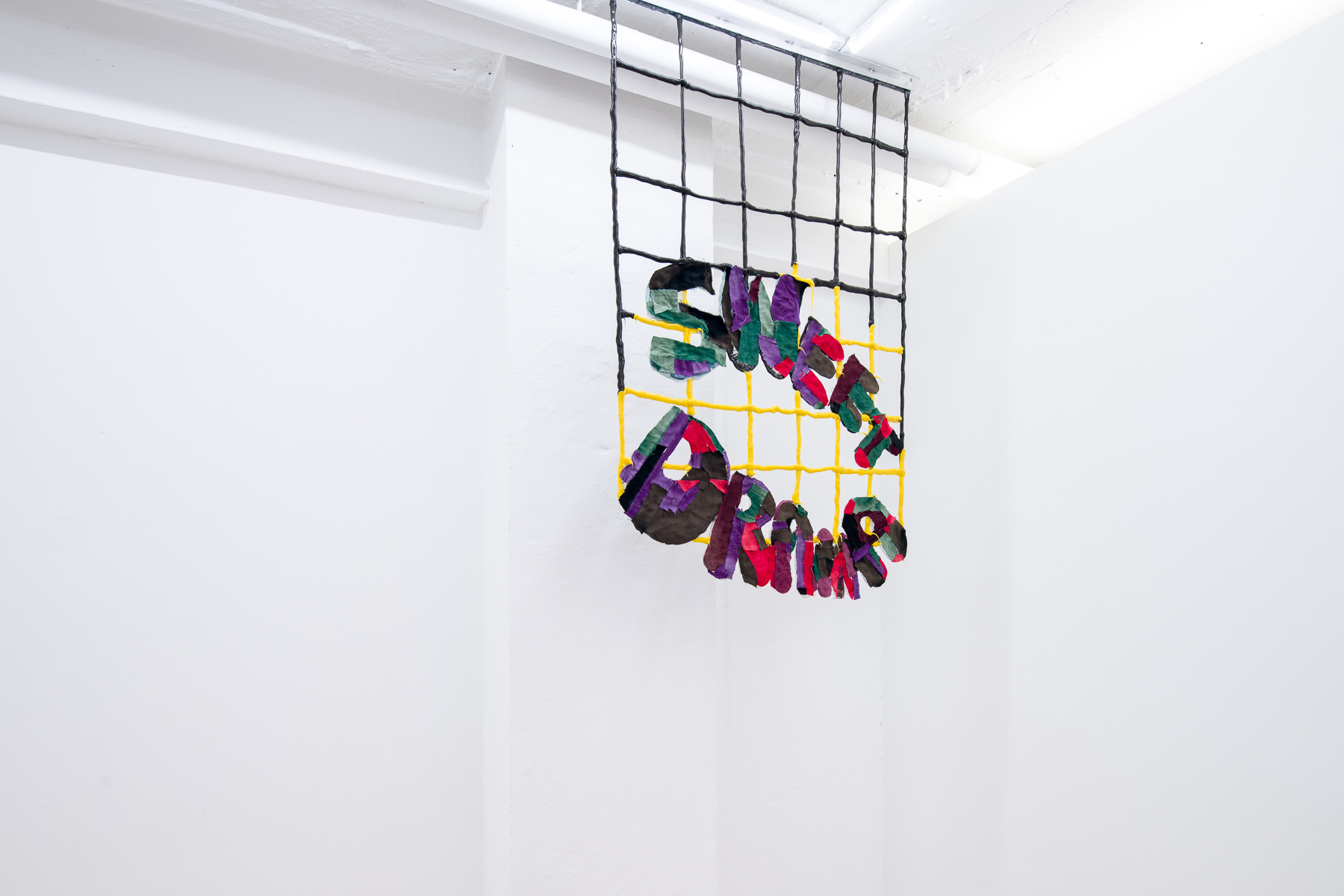
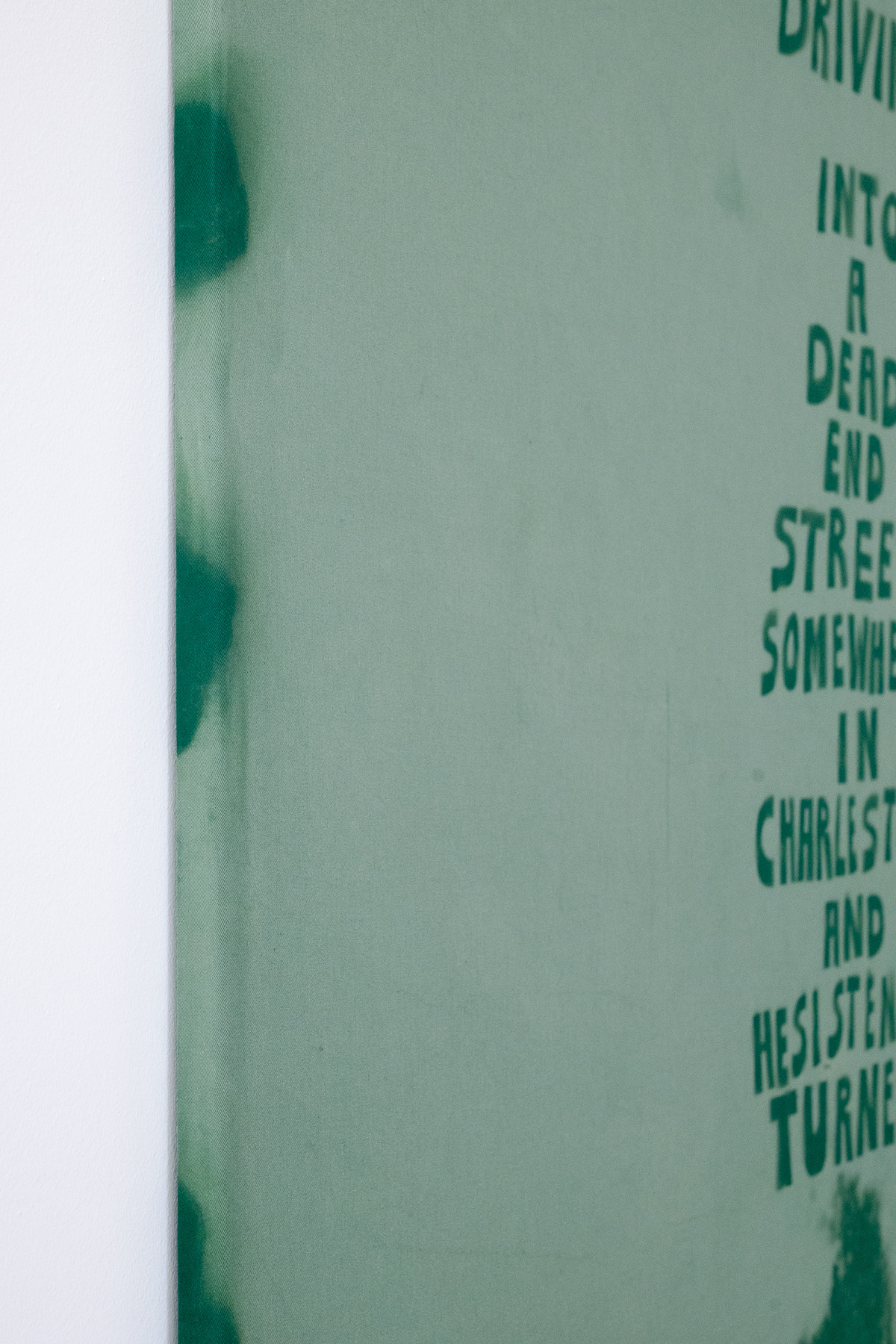
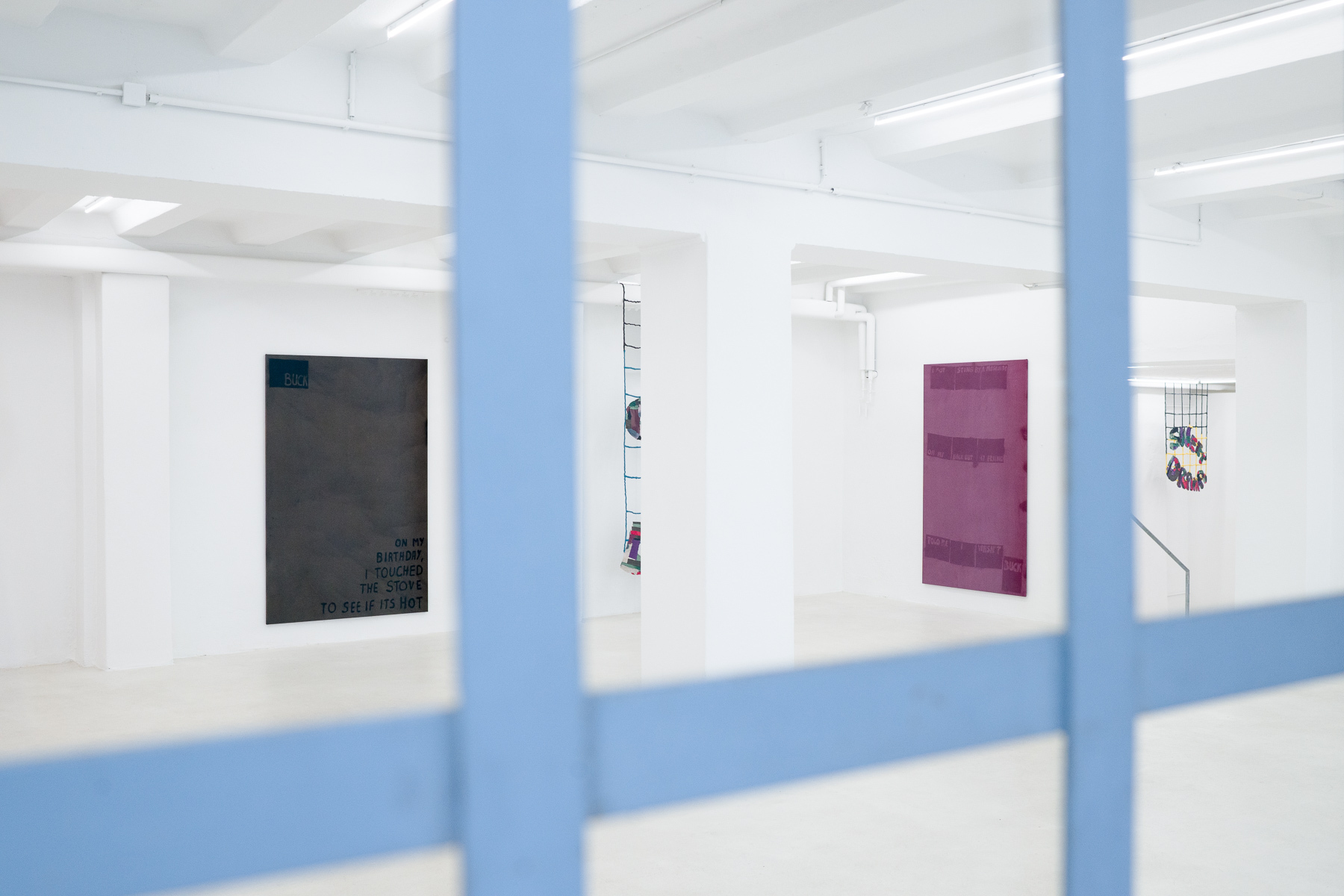
Dennis Buck lives and works in Berlin. He studied at the State Academy of Fine Arts in Karlsruhe and at the University of Arts Berlin where he finished his Masters in 2016. Selected solo exhibitions include “STRESSED IS JUST DESSERTS SPELLED BACKWARDS” at Pop;68 in Cologne, “how u like me now” at Shore Gallery in Vienna and “World’s Worst Hobby” at Office Impart in Berlin.
In his solo show “Sweet Drama” at JVDW gallery, the term Drama is positively connoted and thus placed in new contexts.
The series “International Bleaching” shows works that were created using a method reminiscent of the photographic process of long-term exposure. Over a period of six to eight weeks, canvases are left to bask in sunlight, with stencils serving to protect certain areas of the fabric while others fade under the influence of UV radiation. The series shown in the exhibition were at the mercy of the Sicilian sun for five weeks.
Inherent in the works themselves is the concept of drama, alluding to the inevitability of transience and aging. Through the exposure process, the fabric of the works ages and transforms in UV light. Environmental factors, such as wind gusts, also play a role in the creative process, contributing to the distinctive plastic appearance of some works. The exhibition thus serves as a snapshot of a specific location over the duration of the exposure process, capturing and documenting external influences and weather conditions.
Typography and text play a significant role in Buck’s work and are explored as artistic elements. This idea stemmed from his previous works, where Buck incorporated his name, studio address, and cell phone number into his images, which references the idea of an artist as a business. While his name continues to appear as a recurring element in his current work, Buck also utilises poetic phrases that adorn the canvases. These sentences serve as fragments of memories and moments from the artist’s life, inviting the viewer to revisit their own associations and memories.
Amira Hartmann
